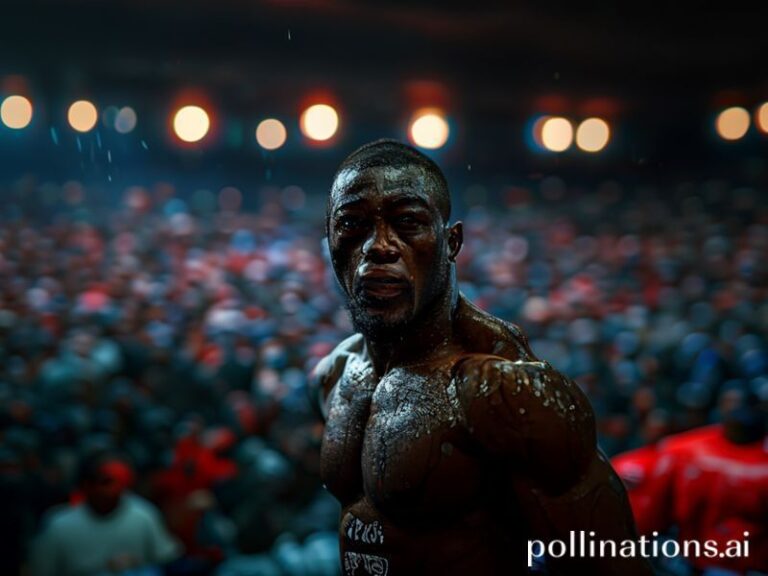Russell Henley’s Quiet Birdie: How a Georgia Golfer Became an Unlikely Proxy in the World’s Soft-Power Struggle
Russell Henley and the Geopolitics of a Quiet Birdie
From Dave’s Locker International Desk
In the grand carnival of global affairs—where TikTok algorithms decide elections and crypto moguls vanish into thin air—a 33-year-old man from Macon, Georgia, quietly two-putted his way into the conversation last month. Russell Henley’s victory at the Houston Open didn’t trend on Weibo, trigger a run on the yen, or cause OPEC ministers to choke on their espressos. Yet, in an era when even a sneeze on the PGA Tour can ricochet through sovereign wealth funds and streaming-rights negotiations, Henley’s win is a tidy parable of our fractured planet.
Let us zoom out. The golf industry—once the serene refuge of plaid-clad oligarchs and presidents who needed plausible deniability for four-hour lunches—now sits at the nexus of petrodollars, state propaganda, and the last sliver of live television that advertisers still trust. Henley, a former University of Georgia Bulldog who speaks in the gentle monotone of a man apologizing for existing, is the latest beneficiary (or hostage?) of this circus. His triumph arrived just days after the Saudi-backed LIV Tour poached another batch of PGA loyalists, sending broadcast executives scrambling like first-class passengers on the Titanic. Henley, loyalist extraordinaire, pocketed the $1.58 million winner’s check and politely declined to comment on “sportswashing,” thereby preserving both his Visa card and his knees.
From Singapore trading floors to the back-nine patios of Dubai, financiers parse every leaderboard as if it were a Fitch rating. Why? Because professional golf is now a proxy war for soft power. When Henley holed a 25-footer on the 72nd green, he didn’t just beat Ben Taylor; he momentarily propped up the PGA Tour’s market valuation, which in turn props up the U.S. media-rights complex, which in turn underwrites everything from Monday Night Football to the Department of Defense’s recruitment ads. Somewhere in Beijing, a mid-level apparatchik probably updated a spreadsheet labeled “Cultural Leverage Index – Golf (Men)” and sighed at the continued Anglo-American dominance of the short grass.
Meanwhile, in the real world, Henley’s win means something far simpler and crueler: he gets to keep his tour card for two more seasons while 125 other guys wake up at 4 a.m. to practice flop shots in Orlando humidity, praying that a herniated disc doesn’t turn them into real-estate agents. The same week Henley lifted the trophy, the United Nations announced that global displacement had hit 114 million souls. The juxtaposition is not lost on Henley, who spent part of his post-round press conference discussing his church mission trip to Haiti—an act of charity that doubles as a moral shield against questions about why grown men earn generational wealth by whacking a little white sphere toward a hole the size of a latte lid.
Europeans, ever eager to lecture Americans on excess, have their own moral cul-de-sac. The DP World Tour—sponsored by, yes, a Dubai ports conglomerate—has welcomed Henley and his compatriots to its co-sanctioned events, ensuring that a kid from Georgia can chase ranking points under the same desert sun that bakes South Asian migrant laborers. Golf’s governing bodies call this “growing the game.” Critics call it “globalized guilt laundering.” Henley just calls his travel agent.
Of course, the pandemic taught us that even the most cloistered elites can’t escape the planet’s airborne dread. When COVID-19 shut down the tour in 2020, Henley spent quarantine at home, posting Instagram videos of backyard chip shots while his neighbors stockpiled toilet paper. That footage now feels like a time capsule from a more innocent dystopia—before vaccines became culture-war ammo and before the world’s largest sovereign wealth fund started handing out signing bonuses larger than the GDP of Samoa.
So what does Russell Henley mean to the international reader? He is a mild-mannered data point in capitalism’s ongoing feasibility study. He is proof that meritocracy still flickers, even if the referees are wearing Lululemon and the stakes are underwritten by regimes with questionable human-rights records. He is, in short, the perfect 21st-century champion: talented, uncontroversial, and blissfully aware that the loudest sound in golf is still the silence that follows a missed three-footer—except now that silence is live-streamed to 217 countries and monetized by every streaming platform still pretending to be profitable.
In other words, the world keeps turning, the oceans keep rising, and Russell Henley keeps hitting fairways. If that isn’t a metaphor for late-stage everything, I don’t know what is.







